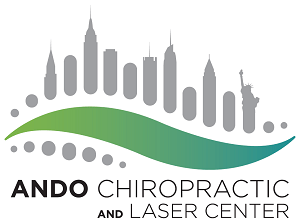
People with AD suffer a variety of symptoms which affect their day-to-day life. These symptoms include memory loss, problems with sleep, poor judgement, problems speaking and even paranoia.
So what causes Alzheimer’s disease? Unfortunately, we are not sure what causes it, but scientists found out that the development of plaques and tangles in the brain is the major factor in AD. Plaques are clusters of protein that build up between the nerve cells in the brain, which stop cells from signaling to each other. Tangles are dead or dying nerve cells. They prevent nutrients from moving through the cells, causing them to die.
They also found the link between low level of vitamin D in the body and AD. Vitamin D is a fat-soluble vitamin responsible for enhancing absorption of many important minerals, such as calcium, iron, magnesium and zinc. A diet deficiency in vitamin D increases a risk of bone and muscle weakness, cardiovascular disease, severe asthma in children and even cancer. Researchers also found that vitamin D helps clear plaques in the brain, which is a hallmark of AD. The risk of cognitive impairment is up to 4 times greater in the individuals with severely low vitamin D (less than 25nmol/L) in comparison with those with adequate levels (> 75nmon/L). Other study shows that in people with AD, there are fewer vitamin D receptors in hippocampus—a part of the brain involved in forming memories. Vitamin D binds to these receptors in the brain and influencing the way we think, learn and act.
Vitamin D can be obtained from foods and sun exposure. Foods that are high in vitamin D, such as fatty fish, beef liver, nuts, cheese, egg yolks and mushrooms help raise the blood level. If you follow a strict vegan diet, you need to be particularly cautious since most of the natural sources are animal-based. Exposure to sunlight helps the body make vitamin D. If you are homebound, live in northern latitudes or use sunscreen everyday, you have to make an extra effort to go outside and get enough sunlight. Vitamin D level may still be low even with a proper diet and sun exposure. In this case, supplementation is required to reach the goal.
How much foods and sunlight do we need in order to get enough vitamin D in the body? Chiropractors can help you find out. Nutrition is one of the core curriculum in Chiropractic college, and most states requires nutrition education to be included in the continuing education (less than half of all U.S. medical schools require the minimum credit hours recommended by the National Academy of Sciences). Please remember that excess intake of vitamin D may cause vitamin D toxicity, so you should consult with your chiropractor to keep the level adequate all the time. Please contact us at (201) 496-6066 or send us a message from Contact Us page.
References:
- Latest Alzheimer’s Facts and Figures. (2015) Retrieved from http://www.alz.org/facts/
- Vitamin D, Third Edition by Feldman D, Pike JW, Adams JS. Elsevier Academic Press, 2011.
- Soni, M., Kos, K., Lang, I. a, Jones, K., Melzer, D., & Llewellyn, D. J. (2012). Vitamin D and cognitive function. Scandinavian Journal of Clinical and Laboratory Investigation. Supplementum, 243(Suppl 243), 79–82.
- Balion, C., Griffith, L. E., Strifler, L., Henderson, M., Patterson, C., Heckman, G., … Raina, P. (2012). Vitamin D, cognition, and dementia; A systematic review and meta-analysis. Neurology, 79(13), 1397–1405.
- Oudshoorn, C., Mattace-Raso, F. U. S., Van Der Velde, N., Colin, E. M., & Van Der Cammen, T. J. M. (2008). Higher serum vitamin D3 levels are associated with better cognitive test performance in patients with Alzheimer’s disease. Dementia and Geriatric Cognitive Disorders, 25(6), 539–543.
